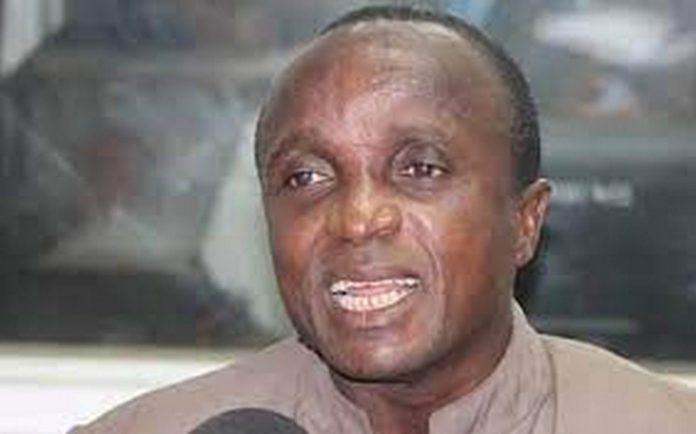Former Chief Executive Officer of the defunct Ghana Youth Employment and Entrepreneurial Development Agency (GYEEDA), Abuga Pele, has opened up about the circumstances leading to his incarceration
Contrary to the known assertion that he diverted public funds for his personal use, Mr Pele says he was jailed for appending his signature on a memo prepared by his subordinate officer.
The former Chiana-Paga lawmaker insists he never stole any money like the public is made to believe but rather his signature was on a document prepared by his accountant.
“I just want them to understand that there have been many stories, particularly in my constituency that I’ve diverted millions of dollars. It’s not about the money that came to me, it’s about a memo that my accountant wrote and I signed.
“I want them to know that I will always fight corruption and that I will be the last person to take money that belongs to the youth of this country and use it personally. There are many stories I can cite to explain what I’m saying,” he said on Bolgatanga-based A1 radio.
Background
Mr Pele, who was granted a presidential pardon by the current New Patriotic Party government, was jailed for six years for causing financial loss to the state.
An Accra High Court convicted Mr Pele and a private service provider, Philip Assibit after they were found guilty of 19 counts including dishonestly causing financial loss to the state.
The Court was satisfied that the prosecution had proved 13 of the 19 counts Mr Pele faced ranging from aiding and abetting crime to willfully causing financial loss to the state.
Some of the counts included intentionally misapplying public property and dishonestly causing loss to public property.
His counterpart Philip Akpeena Assibit, who was CEO of Goodwill International Ghana, was found guilty of six of the 19 counts he faced including defrauding by false pretenses.
The two from 2014 were in court over the matter. Mr Assibit is accused of putting in a false claim for payments to the tune of 3.3million cedis as services provided by the then GYEEDA.
This included developing an exit program and securing a grant of 65 million cedis from the World Bank.
READ ALSO:

